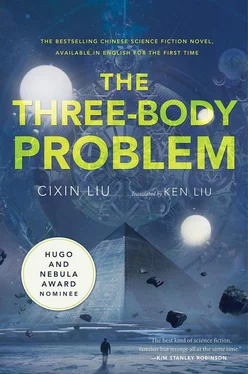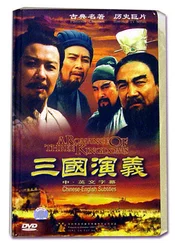Just then, my husband, Yang Weining, showed up.
After I explained to him what had happened, he looked over the cliff edge. Then he said that to inspect the ground terminal in the cliff face required digging, and the work would be too much for just Lei. He wanted to go down to help, so he put on the safety harness left by that other soldier. I asked him to use another rope, but he said no—the rope that Lei was on was thick and sturdy and could easily bear the weight of two. I insisted, so he told me to go get the rope. By the time I rushed back to the cliff with the rope, he had already gone down over the side. I poked my head over the edge and saw that he and Lei had already finished their inspection and were climbing back up. Lei was in the front.
There would never be another chance. I took out my hacksaw and cut through the rope.
* * *
INTERROGATOR: I want to ask a question, but I won’t record the answer. How did you feel at the time?
YE: Calm. I did it without feeling anything. I had finally found a goal to which I could devote myself. I didn’t care what price had to be paid, either by me or by others. I also knew that the entire human race would pay an unprecedented price for this goal. This was a very insignificant beginning.
INTERROGATOR: All right. Continue.
YE: I heard two or three surprised cries, and then the sound of bodies slamming against the rocks at the cliff bottom. After a while, I saw that the stream at the foot of the cliff had turned red…. That’s all I’ll say about that.
INTERROGATOR: I understand. This is the record. Please check it over carefully. If there are no errors, please sign it.
The deaths of Lei and Yang were treated as accidents. Everybody at the base knew that Ye and Yang were a happy couple, and no one suspected her.
A new commissar came to the base, and life returned to its habitual peace. The tiny life inside Ye grew bigger every day, and she also felt the world outside change.
One day, the security platoon commander asked Ye to come to the gatehouse at the entrance to the base. When she entered the gatehouse, she was surprised to see three children: two boys and a girl, about fifteen or sixteen. They all wore old coats and dog fur hats, obviously locals. The guard on duty told her that they came from the village of Qijiatun. They had heard that the people on Radar Peak were learned and had come to ask some questions related to their studies.
Ye wondered how they dared to come onto Radar Peak. This was a restricted military zone, and the guards were authorized to warn intruders only once before shooting. The guard saw that Ye was puzzled and explained that they had just received orders that Red Coast Base’s security rating had been reduced. The locals were allowed onto Radar Peak as long as they stayed outside the base. Several local peasants had already come yesterday to bring vegetables.
One of the children took out a worn-out middle school physics textbook. His hands were dirty and cracked like tree bark. In a thick Northeastern accent, he asked a simple physics question: The textbook said that a body in free fall is under constant acceleration but will always reach a terminal velocity. They had been thinking about this for several nights and could not understand why.
“You walked all this way just to ask this?” Ye asked.
“Teacher Ye, don’t you know that they’ve restarted the exam?” the girl said excitedly.
“The exam?”
“The National College Entrance Exam! Whoever studies hard and gets the best score gets to go to college! It began two years ago. Didn’t you know?”
“There’s no need for recommendations anymore?”
“No. Anyone can take the exam. Even the children of the Five Black Categories in the village can take it.” [35] Translator’s Note: The Five Black Categories, the targets of the Cultural Revolution, were five political identities used during the revolution: landlords, rich farmers, counter-revolutionaries, “bad elements,” and right-wingers.
Ye was stunned. This change left her with mixed feelings. Only after a while did she realize that the children were still waiting with their books held up. She hurriedly answered their question, explaining that it was due to air resistance reaching equilibrium against the force of gravity. Then she promised that if they encountered any difficulties in their studies in the future, they could always come to her for help.
Three days later, seven children came to seek Ye. In addition to the three who had come last time, there were four more from villages located even farther away. The third time, fifteen children came to find her, and even a teacher at a small-town high school came along.
Because there was a shortage of teachers, he had to teach physics, math, and chemistry, and he came to ask Ye for some help on teaching. The man was over fifty years old, and his face was already full of wrinkles. He was very nervous in front of Ye, and spilled books everywhere. After they left the gatehouse, Ye heard him say to the students: “Children, that was a scientist . A real, bona fide scientist !”
After that, children would come to her for tutoring every few days. Sometimes there were so many of them that the gatehouse couldn’t accommodate them all. With the permission of the officers in charge of base security, the guards would escort them to the cafeteria. There, Ye put up a small blackboard and taught the children.
It was dark by the time Ye got off work on the eve of Chinese New Year, 1980. Most people at the base had already left Radar Peak for the three-day holiday, and it was quiet everywhere. Ye returned to her room. This was once the home of her and Yang Weining, but now it was empty, her only companion the unborn child within her. In the night outside, the cold wind of the Greater Khingan Mountains screamed, carrying with it the faint sound of firecrackers going off in the village of Qijiatun. Loneliness pressed down on Ye like a giant hand, and she felt herself being crushed; compressed until she was so small that she disappeared into an invisible corner of the universe….
Just then, someone knocked on her door. When she opened it, Ye first saw the guard, and then, behind him, the fire of several pine branch torches flickering in the cold wind. The torches were held aloft by a crowd of children, their faces bright red from the cold, and icicles hung from their hats. When they came into her room, they seemed to bring the cold air in with them. Two of the boys, thinly dressed, had suffered the most. They had taken off their thick coats and wrapped them around something that they carried in their arms. Unwrapping the coats revealed a large pot, the fermented cabbage and pork dumplings inside still steaming hot.
* * *
That year, eight months after she sent her signal toward the sun, Ye went into labor. Because the baby was malpositioned and her body was weak, the base clinic couldn’t handle her case and had to send her to the nearest town hospital.
This became one of the hardest times in Ye’s life. After enduring a great deal of pain and losing a large amount of blood, she sank into a coma. Through a blur she could only see three hot, blinding suns slowly orbiting around her, cruelly roasting her body. This state lasted for some time, and she hazily thought it was probably the end for her. It was her hell. The fire of the three suns would torment her and burn her forever. This was punishment for her betrayal, the betrayal that exceeded all others. She sank into terror: not for her, but for her unborn child—was the child still in her? Or had she already been born into this hell to suffer eternally with her?
She didn’t know how much time had passed. Gradually the three suns moved farther away. After a certain distance, they suddenly shrank and turned into crystalline flying stars. The air around her cooled, and her pain lessened. She finally awoke.
Читать дальше












